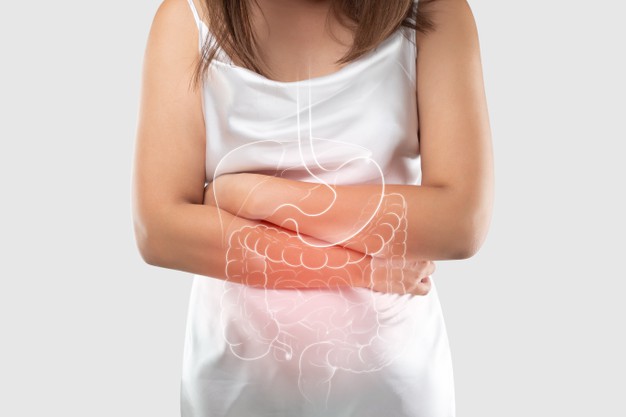Irritable Bowel Syndrome
What is Irritable Bowel Syndrome
Irritable Bowel Syndrome (IBS) is a chronic and a crippling condition of the gastrointestinal tract that affect a whopping 9%-23% of the entire world’s population. In fact, according to a research study published in the World Journal of Gastroenterology, almost 12% of all patients that come for seeking primary healthcare suffer from Irritable Bowel Syndrome, which is an overwhelmingly large proportion of all Gastroenterology patients. Clearly, Irritable Bowel Syndrome that is characterized by an altered bowel habits, including mild to severe discomfort and pain in the abdominal region, is extraordinarily pervasive and deserves our attention. Irritable Bowel Syndrome (IBS) could be sub-categorized based on three principal symptoms, including, pain associated with diarrhoea, pain associated with constipation, and pain and diarrhoea alternating with constipation. Before looking into each of these different variants of symptoms associated with Irritable Bowel Syndrome, let’s delve deep into the causes that lies beneath IBS.
Need to consult a dietitian for Irritable Bowel Syndrome (IBS) Management?
Quickly Book an Appointment.

Causes of Irritable Bowel Syndrome
The exact cause of Irritable Bowel Syndrome (IBS) is unknown. While there are distinct physiological processes that can be observed, some potential causes have been enumerated below:
1. Problems with Muscle Contraction and Relaxation in the intestine:
During normal circumstances our muscle linings in the intestines help in moving food along the digestive tract. These muscles would intermittently contract and relax so that the food may pass through smoothly. This process is disturbed in people with Irritable Bowel Syndrome. If the contractions of muscles in the intestine are stronger and lasts for a longer duration, bloating, gas or diarrhoea might occur. However, when the contractions are weak and takes longer, the passing of food becomes slow and often the stool gets dried and hard in the process resulting in IBS.
2. Psychological Factors:
Johns Hopkins Medicine reports that approximately 40-60% of patients with IBS who seek medical care also have psychiatric symptoms, including depression, anxiety or somatization. In fact, history of abuse also has a direct positive correlation with the severity of symptoms. A stressful childhood might also significantly contribute to the development of IBS. Although it is important to remember that stress doesn’t cause IBS, it might exacerbate condition and therefore often act as an important trigger.
3. Neurotransmitter Related Factors:
Abnormalities in the nerves present in the digestive system may also cause a greater sensation of discomfort and pain among patients with Irritable Bowel Syndrome. There might be an insufficient coordination between signals between the brain and the intestines in IBS patients that make their bodies overreact to normally occurring digestive process. This abnormality may also result in diarrhoea, constipation and pain. Hormones may also play an important factor in IBS.
4. Foreign bodies:
Bacterial overgrowth in the intestine may lead to IBS. In fact, it has often been observed that after a bout of severe diarrhoea caused either by a bacteria or virus, IBS symptoms have developed or enhanced. In fact, researchers have found that people with IBS have a different composition of gut bacteria than people without IBS.
5. Genetics:
Hereditary factors may also have significant contribution in developing IBS.
In addition to these causes, it has often been found that sudden buildup of stress and having certain types of foods and beverages, including wheat, dairy products, citrus fruits, beans, cabbage, milk and carbonated drinks could act as a trigger in enhancing IBS.
Now that you know the causes, there’s a good news for you. Managing IBS with diet is easy with a dietitian. They tailor a personalized plan, often focusing on low-FODMAP foods, fiber intake, and food triggers. FODMAP stands for Fermentable Oligosaccharides, Disaccharides, Monosaccharides, and Polyols. These are short-chain carbohydrates and sugar alcohols found in certain foods. Monitoring portions and meal timing helps alleviate symptoms. A nutritionist provides ongoing support and adjustments, ensuring a balanced diet that minimizes IBS discomfort and promotes overall gut health.
Symptoms of Irritable Bowel Syndrome
The single biggest problem with Irritable Bowel Syndrome is that it’s long term and needs to be managed for a very long time.
Common symptoms associated with IBS include:
- Abdominal pains and cramps caused by a hindered bowel movement
- Distortion in the regularity of bowel movement.
- The appearance of stool may change.
Although, these symptoms can be present for very long periods of time, you would need to see a doctor if the following occurs:
- Anaemia
- Rectal bleeding while having bowel movements
- An apparent loss in weight which at times might be drastic
- Difficulty in swallowing food
- Vomiting that does not have any apparent reason.
- Pain that isn’t relieved even after passing of the stool or gas.
Some of the symptoms of IBS is similar to symptoms of Colon Cancer and hence it is important to ascertain the underlying causes behind the symptoms with diagnostic tests recommended by doctors. Also with IBS management diet, you can control the symptoms.
Risk Factors
While people of all age, sex and geography suffer from IBS, there are certain factors that significantly enhance the risk factor in developing IBS, some of which has been hinted while discussing the causes of IBS.
1. Age: The highest preponderance of IBS is seen in persons in their middle adulthood.
2. Gender: Most of the cases diagnosed with IBS are female.
3. Family history: As has been pointed earlier, hereditary factors are significantly contributive in developing IBS. Researches have shown that many people with IBS have a first degree relative (parents or sibling) with the disorder. (Crohn’s and Colitis Foundation of America)
4. Psychological History: A history of psychological distress, anxiety, depression, childhood abuse, may turn out to be a risk factor as has been explained before.
Complications, Diagnosis & Managment
While it must be mentioned that Irritable Bowel Syndrome does not cause colon cancer, it may worsen life, because of how long it affects a person.
People with IBS often have a poorer quality of life. Apparently, people with IBS miss three times as many days from work than those without IBS.
Also, IBS may cause mood disorders that might further lead to anxiety and depression.
Diagnosis
There isn’t any specific diagnosis for identifying IBS. Doctors perform physical examinations and collect data related to family history for identifying this condition. A doctor might refer to other diagnostic tests as per symptoms in order to rule out diseases with similar symptoms.
Treatment and IBS management
- Diet and lifestyle: Diet and lifestyle modifications have a significant role in IBS management. Proper diet, along with physical activity, helps in reducing debilitating IBS symptoms.
- Medications: Doctors may prescribe medicines as is required by the patients.
- Saha L. Irritable bowel syndrome: pathogenesis, diagnosis, treatment, and evidence-based medicine. World J Gastroenterol. 2014; 20 (22):6759-6773. doi:10.3748/wjg.v20.i22.6759
- https://www.hopkinsmedicine.org/gastroenterology_hepatology/_pdfs/small_large_intestine/irritable_bowel_byndrome_ibs.pdf
- https://www.mountsinai.on.ca/care/fammed/patient-resources/nutrition/irritable-bowel-syndrome-ibs.pdf
- https://www.mayoclinic.org/diseases-conditions/irritable-bowel-syndrome/diagnosis-treatment/drc-20360064
- https://www.crohnscolitisfoundation.org/sites/default/files/legacy/assets/pdfs/ibd-and-irritable-bowel.pdf
How Food & Wellness can help you?
Food n Wellness provides thoughtfully curated packages for IBS depending upon the conditions and requirements of the clients. The IBS management diet plan will be meticulously designed towards making improvements in your conditions over and beyond our period of our engagement. We shall discuss with you your food preferences, dietary habits, lifestyle, exercise pattern, sleep cycle, and review your medical reports, travel frequencies, cooking restrictions, food allergies and other details. On the basis of the information collected we shall craft a detailed plan for every day of the plan period.
The diet plans and lifestyle counselling that shall be provided by Food N Wellness is designed to reduce the symptoms associated with IBS like constipation, diarrhoea, cramping, pain, rectal bleeding etc., and thereby contribute towards improving the quality of overall life.
The diet plans are crafted in a way that it addresses to normalize the often distorted composition of gut bacteria and thereby significantly improve your gut health. Improving gut health will not only help you to manage the symptoms associated IBS but also make your gastrointestinal health better.
The diet recommendations shall be flexible and provide you with ample varieties, so that the food you eat won’t be monotonous and you shall be able to follow and embrace it.
Once the programme ends, a maintenance plan is suggested so that you shall be able to implement the learning during the period of programme to plan for a healthy future.

Let's get started with treating your condition...
At Food & Wellness we believe that every individual is different and needs special attention. We adapt our programme to your existing lifestyle and try not to change anything drastically so you can easily transition. Over a period of time we ensure results and help you restore your health.
Irritable Bowel Syndrome Articles

Alive (Halim) seeds laddu
Aliv (Halim) Ladoos are nutritious and delicious treats made from Aliv seeds. These ladoos are rich in fiber, protein, and essential nutrients, making them a healthy snack option. Also it’s nutrition content makes it great choice for lactating mother.

Understanding Eating Disorders: A Simple Guide
Understanding Eating Disorders: A Simple Guide Eating disorders are serious mental health conditions that affect a person’s relationship with food and eating. They can have a profound impact on physical and emotional health. Let’s take a closer look at eating disorders, including their types, causes, symptoms, and treatment options. Types of Eating Disorders Eating



